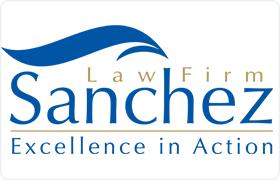Pinehurst Eminent Domain Lawyer, Texas, page 2
Sponsored Law Firm
-
 x
x

Click For More Info:
-
Sanchez Law Firm
150 W. Parker Rd. 3rd Floor Houston, TX 77076» view mapReal Estate Excellence In Action
We advocate for our clients in and out of court. When you and the system meet head on, you need an attorney who is experienced, credible, and active.
800-785-3351
Ronald Holt Thrash
Eminent Domain, Litigation, Dispute Resolution, Securities
Status: In Good Standing *Status is reviewed annually. For latest information visit here Licensed: 27 Years
Thomas E. Sheffield
Real Estate, Eminent Domain
Status: In Good Standing *Status is reviewed annually. For latest information visit here Licensed: 35 Years
 Benjamin Sanchez Houston, TX
Benjamin Sanchez Houston, TX Practice AreasExpertise
Practice AreasExpertise